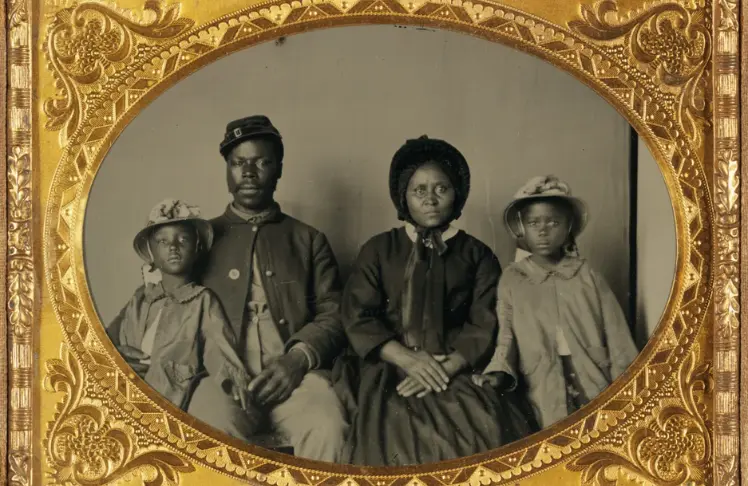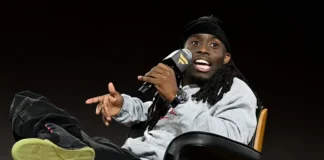
by Aswad Walker
I’m a Texas transplant. Though originally from Cincinnati, my family and I (mom, dad, little sister, and me) relocated to Houston from New Orleans in 1973. So, fresh off being introduced to the nasty, smelly horror known as crawfish while in the Big Easy, H-Town placed before me something just as hard to digest — Juneteenth.
Introduction to Juneteenth
While driving my sister and me to our first Juneteenth parade, I asked my father to explain this new holiday. When he broke it down to me that it was a celebration of enslaved Blacks getting the news of their freedom some 2 ½ years after the Emancipation Proclamation, something inside me surely asked, “Come again?”
My fourth-grader brain could not process why Blackfolk would be celebrating enslavers, withholding that information to get over two additional years of free, forced labor. I may have been in elementary, but it didn’t take a Ph.D. to figure out Blacks were getting screwed.
Yet, there we stood as floats and bands cheerfully progressed, and attendees gleefully exalted the remembrance of what felt to me like an egregious crime.
My view of June 19, 1865, didn’t change until I began to hear whispers that Juneteenth was actually more about Black troops moving from plantation to plantation freeing the enslaved than it was about the white savior version of the story that centers Union Army General Gordon Granger and his reading of General Order No. 3 in Galveston.

Juneteenth: The Blackening
World-renowned historian Dr. Gerald Horne’s work later confirmed those whispers I heard. Horne documented that after Granger announced enslaved Blacks were free, human traffickers (enslavers) throughout the Gulf Coast (from East Texas to Louisiana) refused to comply. Hence, freedom only came when Granger’s 2,000 mostly Black troops literally engaged in battle after battle, freeing the enslaved.
Upon learning this, I became a new and enthused Juneteenth-celebrating convert. I was good. Juneteenth shifted in my brain from another in a long line of crimes against our people to a story of Black self-determination — Blackfolk freeing Blackfolk.
And when learning that the Emancipation Proclamation only applied to “freeing” the enslaved in Confederate states, and not Union ones, the Juneteenth acts of those Black troops gained significance and opened the door to full emancipation.
What a beautiful Black story!
But with Horne’s book “The Counter-Revolution of 1836: Texas Slavery & Jim Crow and the Roots of U.S. Fascism,” the illustrious historian with over 30 books authored to his credit, went even further on expanding the Juneteenth narrative. In fact, even before that book was published, Horne shared with me in an August 2021 Defender article his assertion that there was a second Juneteenth that deserved recognition.
In essence, the Juneteenth story gets even Blacker.
A Second Juneteenth
Horne shares that Granger’s same Black army that accompanied him and went to war in 1865 to enforce the original Juneteenth’s proclamation, saving America from its anti-democratic and enslaving ways, again saved the nation two years later, on June 19, 1867 — the second Juneteenth.
Granger’s Black troops put down an insurrection led by ex-Confederate soldiers working with the French, who moved their base of operations to Mexico in a mass exodus with plans of re-taking Texas for the Confederacy as step one in restarting the Civil War — and re-instituting slavery in this country.
How, you ask?
Mexico, which declared its independence from Spain in 1821, became overwhelmed by debt, opening the door for France to invade.
A National Park Service article states:
French Emperor Napoleon III took advantage of the situation by attempting to create a French empire in Mexico. French troops mobilized for deployment to Mexico. During one French invasion on May 5, 1862, Mexican resistance fighters defeated the French at the Battle of Puebla, which is the inspiration for the popular Cinco de Mayo holiday in the United States. The French regrouped, however, and captured Mexico City. They installed an Austrian Hapsburg prince named Maximilian as Emperor of Mexico in 1864… Conversely, the Confederacy welcomed Maximilian’s government as a possible ally in securing French recognition of the Confederacy.
In an ironically dated June 19, 1865, letter to President Andrew Johnson, Ulysses S. Grant wrote, “I regard [France’s] act of attempting to establish a Monarchical Government on this continent, in Mexico, by foreign [bayonets] as an act of hostility against the Government of the United States. If allowed to go on until such a government is established, I see nothing before us but a long, expensive and bloody war.”
It goes without saying that stopping those Confederate and French troops working in tandem was tantamount to literally saving America. And though historians speak of Mexico’s Benito Juárez’s efforts to put down this pro-slavery, anti-U.S. lot, none until Horne connected Granger’s Black troops to the tale.
“The Confederates would surrender in April 1865. Many of them were headed to Mexico where they planned to continue enslavement. In fact, some made it to Mexico with some of our ancestors in tow… And what happens is General Granger was accompanied by thousands of African troops, Negro troops. It was part of an effort to keep the Confederates from continuing slavery south of the border, which was the plan, and continuing to wage war against the United States from Mexico. And our ancestors — who were armed — helped squash that particular plan.
“In fact… it’s not only June 19, 1865, that we should mark, but also June 19, 1867, because that’s when the French leader Maximillian was killed, which marks the end of the attempt to continue our enslavement in Mexico,” Horne said.
In essence, without Black troops’ help destroying the Confederacy’s Mexico-based, French-backed attempt to restart the Civil War, the emancipation brought by June 19, 1865 may have been very short-lived.















